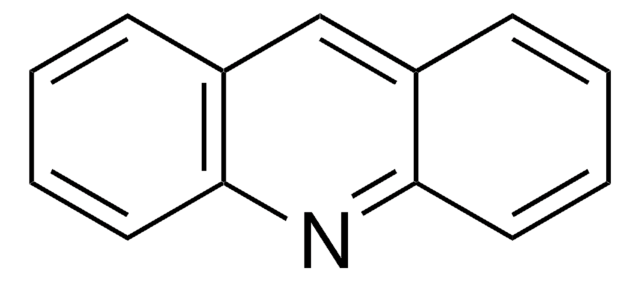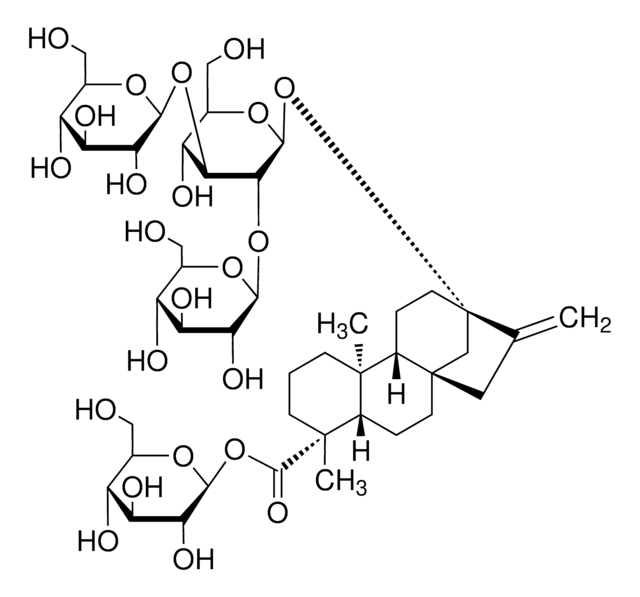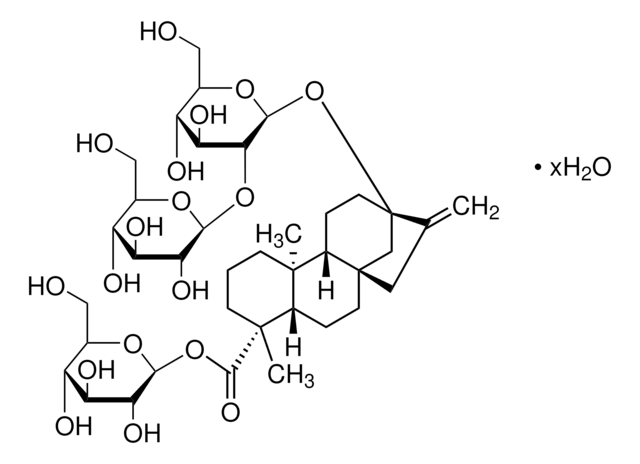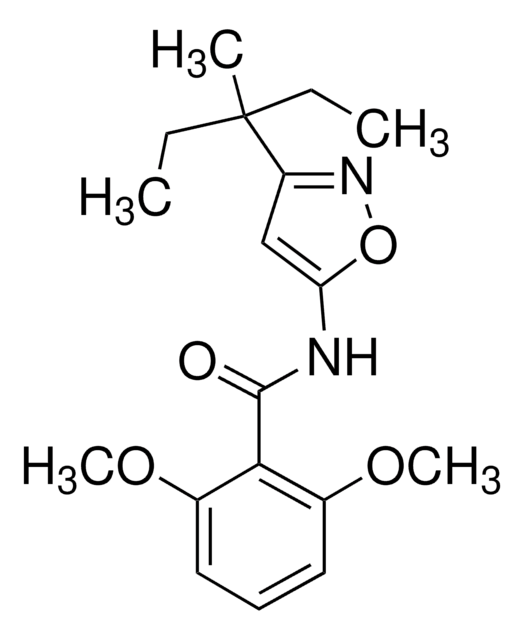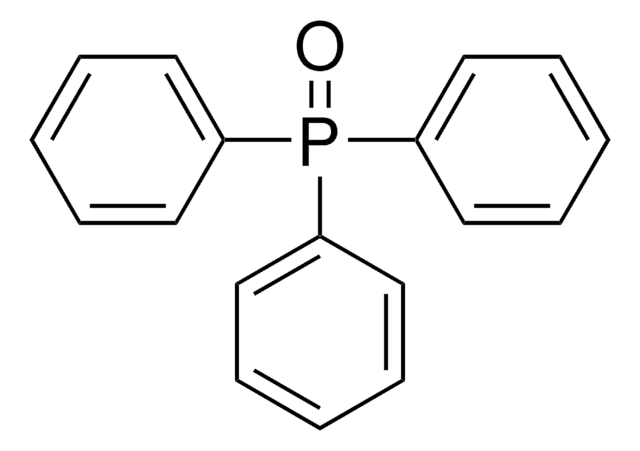01640
Acridine
BioReagent, suitable for fluorescence, ≥97.0% (HPLC)
About This Item
Productos recomendados
Línea del producto
BioReagent
Nivel de calidad
Análisis
≥97.0% (HPLC)
bp
346 °C (lit.)
mp
106-111 °C
107-110 °C (lit.)
solubilidad
ethanol: 0.5 g/10 mL, clear (hot)
carbon disulfide: soluble
diethyl ether: soluble
ethanol: soluble
hydrocarbons: soluble
fluorescencia
λex 360 nm; λem 417 nm in ethanol
idoneidad
suitable for fluorescence
cadena SMILES
c1ccc2nc3ccccc3cc2c1
InChI
1S/C13H9N/c1-3-7-12-10(5-1)9-11-6-2-4-8-13(11)14-12/h1-9H
Clave InChI
DZBUGLKDJFMEHC-UHFFFAOYSA-N
¿Está buscando productos similares? Visita Guía de comparación de productos
Aplicación
Nota de análisis
Palabra de señalización
Warning
Frases de peligro
Consejos de prudencia
Clasificaciones de peligro
Acute Tox. 4 Oral - Aquatic Acute 1 - Aquatic Chronic 1 - Eye Irrit. 2 - Skin Irrit. 2 - STOT SE 3
Órganos de actuación
Respiratory system
Código de clase de almacenamiento
6.1C - Combustible, acute toxic Cat.3 / toxic compounds or compounds which causing chronic effects
Clase de riesgo para el agua (WGK)
WGK 3
Punto de inflamabilidad (°F)
Not applicable
Punto de inflamabilidad (°C)
Not applicable
Equipo de protección personal
dust mask type N95 (US), Eyeshields, Gloves
Certificados de análisis (COA)
Busque Certificados de análisis (COA) introduciendo el número de lote del producto. Los números de lote se encuentran en la etiqueta del producto después de las palabras «Lot» o «Batch»
¿Ya tiene este producto?
Encuentre la documentación para los productos que ha comprado recientemente en la Biblioteca de documentos.
Los clientes también vieron
Nuestro equipo de científicos tiene experiencia en todas las áreas de investigación: Ciencias de la vida, Ciencia de los materiales, Síntesis química, Cromatografía, Analítica y muchas otras.
Póngase en contacto con el Servicio técnico